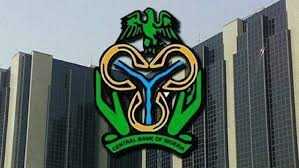The Central Bank of Nigeria (CBN) is set to take direct control of the country’s fixed income market operations in a landmark reform aimed at improving transparency, strengthening regulatory oversight, and enhancing the market’s role in driving economic growth.
In a statement signed by the Acting Director of the Financial Markets Department, the CBN said the first phase of the reform will begin in November 2025, when the apex bank will assume full responsibility for the settlement process and trading platform of fixed income transactions. This move is part of a broader financial market reform agenda designed to improve monetary policy transmission and support long-term economic stability.
According to the CBN, the overhaul seeks to “strengthen market integrity, streamline operations, and establish a unified regulatory framework that ensures end-to-end visibility and supervisory oversight of fixed income transactions.” By managing both the trading platform and settlement processes, the bank aims to reduce systemic risks, increase market efficiency, and enhance investor confidence.
The transition will be implemented in stages to minimize disruption, with the Financial Markets Dealers Association (FMDA) and other key stakeholders actively involved. Key milestones include a User Acceptance Testing (UAT) phase in the second week of October 2025 to evaluate the new settlement infrastructure, followed by a pilot phase running alongside the current system to ensure operational stability. The full migration of settlement processes is scheduled for November 3, 2025, while the activation of the CBN-managed trading environment for Primary Dealers, Market Makers, Pension Fund Administrators, and other authorized participants is set for December 1, 2025.
The apex bank commended the FMDA’s role in the growth of Nigeria’s financial markets and urged continued collaboration to deliver “a more efficient, transparent, and resilient fixed income market.” It also reassured stakeholders that the transition will be coordinated carefully to avoid disruptions and prioritize the interests of market participants and the wider financial system.
This overhaul comes on the heels of another significant directive from the CBN last month, which mandated early succession planning for Managing Directors and Chief Executive Officers of Domestic Systemically Important Banks (DSIBs). The policy requires banks to secure regulatory approval for a successor at least six months before the incumbent’s tenure expires, a move the apex bank says is crucial to strengthening corporate governance and preventing potential shocks to the financial system.
For MSMEs and investors, these reforms signal a shift toward a more transparent and stable financial ecosystem. A more efficient fixed income market can lower borrowing costs, improve access to credit, and create a more predictable business environment—key conditions for small businesses to grow and contribute to Nigeria’s economic development.










